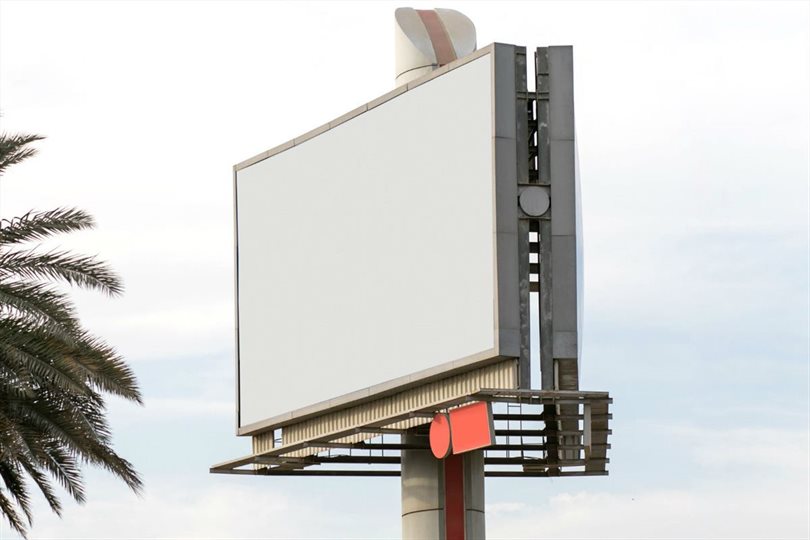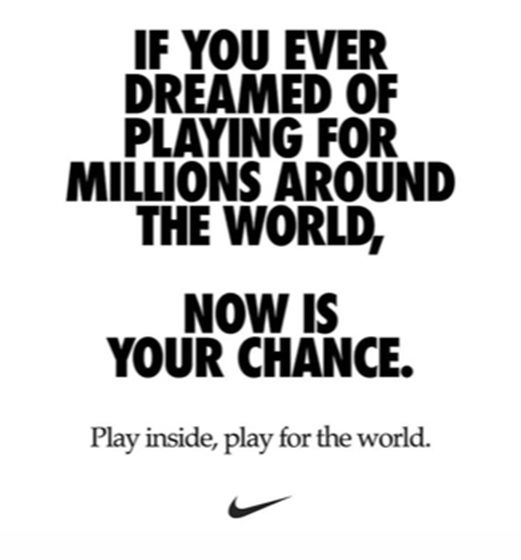Strategically, brands should invest in long-term outcomes. While the cause of the current crisis is different, the effect is similar to that which we saw during the financial crisis of 2007-2008. Then, we saw that brands that continued to spend were those that remained strongest and recovered most quickly afterwards. Long-term effects come from delivering lasting impressions that help to keep the brand salient and position it as meaningful and different for when the consumer comes back into the category. Importantly, note that ‘meaningful difference’ doesn't necessarily have to be functionally or product-driven, it can be brand-driven or even emotional.
Tactically, decisions will need to be made on a brand-by-brand basis. There are some brands that should consider slowing down or stopping spend now:
- As more countries close their borders or go into lockdown, it is not a time to be promoting travel and tourism
- Similarly, be sensitive about advertising categories that people have been told not to use, such as restaurants, out-of-home entertainment or sports
- Take care with advertising products in short supply such as toilet paper, personal cleaning products and store-cupboard essentials, as creating demand that cannot be satisfied could drive consumer frustration. It may also be seen as profiteering from the situation
While early, Kantar work in some markets has seen consumers report they will spend less in categories of luxury, alcohol and health and beauty, these same categories performed very well during the global financial crisis, as people sought out affordable indulgence and small vices. Carefully-created content for these categories may not be rejected by consumers.
We've also seen projections of reduced spend in infrequently purchased categories, such as household appliances, cars and apparel. No advertising in these categories should be intended to drive immediate purchase, so with the right creative, it’s likely to be a good time to build brand predisposition.
There are also some categories that can make people's lives easier during the crisis, so they may want to increase spend here in the short term. These include supermarkets, food delivery services and home entertainment providers. Content from these brands should put people ahead of profit and demonstrate how their products and services can help people adjust to a different way of living.
Natalie Botha, director - creative development for Kantar Africa & Middle East, adds some local context: “It’s simple – if brands would like to exist and demand a market share in five years’ time, they are going to need people to achieve this objective. Right now, people are under threat, so muck in and help or stand on the sidelines and watch the crisis unfold.”
For many brands, the ‘meaningful moments’ will be generated with actions and not words.
A good example is how Audible has released its audio children’s books at no cost to the public, demonstrating support to parents given the current ‘learn from home’ situation many now find themselves in. This has driven instant awareness and fame for Audible amongst parents and is probably cheaper than any advertising campaign they could have run.
South Africa also saw Vodacom change their tower name to “Stay Safe”, a highly emotive message to send out to customers. Given the rollout of Covid-19 in South Africa, this could prove to be an excellent reminder platform for practical advice, like ‘social distance’ or ‘wash your hands’, as it could be easily sent to customers, given the high penetration of mobile phone usage across Africa. This is an example of brands not seeking profit in these situations.
As far as possible, Kantar would always advise consistency, which will be a tough measure to follow in the coming months. It also shines through strongly in Nike’s latest brand communications, as a way to demonstrate consistency even if not through the message itself but rather through brand assets of font, format and creative style:
So, what type of content should I be airing/publishing?
There can’t be any blanket guidance here. The most important thing, as Nigel Hollis says, is for marketers to suspend their own viewpoint and put themselves in the consumers' shoes. In some categories, that will mean that advertising needs to be very product-centric, focussing on people's reported needs to be assured that products and services are safe to use.
In other categories, it might be about suspending product advertising and instead of providing emotional support by showcasing positive values or suggesting solidarity and togetherness. For brands that can't do either of these things, simply demonstrating that they are thinking of people is a possible approach. Whatever the strategy, it is, of course, critical that it is seen as authentic, in line with the brand's values. The brand mustn't be seen as taking advantage of the situation.
Often, in a time of crisis – and indeed, in many countries and categories over the last couple of years – we have seen a tendency for brands to drop brand-building communication and move to more performance or activation-type advertising, in order to maximise sales in the short term. While that might indeed work as a short-term strategy, as discussed earlier, that may not prime the brand for success in the future, post-crisis. Think carefully before airing promotional content, as it can be seen as self-serving. However, there may be cases where this is appropriate, such as in the UK where Disney is offering a one-year subscription offer to Disney+.
If your current campaign is product-focused, it doesn't necessarily have to be pulled. While in most markets, it isn't business as usual, delivering advertising that suggests a degree of normality can help to prevent panic and impact on mental health that is expected as a result of uncertainty and self-isolation. What's more, as more countries are restricting the free movement of people, it is likely that advertising products will be limited, so existing assets will need to work harder.
Creatively, it would be wise to ensure that content doesn't show behaviour that is contrary to local health authority advice and government regulations around social distancing, or that would cause panic.
In recent days, we've seen:
- Insurer Geico pull an ad that features the ‘Perfect High Five’
- KFC suspend a campaign featuring people licking their fingers after eating the chain's fried chicken
- Chocolate brand Hershey pause its ‘heart-warming the world’ campaign and replacing it with more product-centric ads, as hugs and handshakes are risk factors for transmission of the virus
- Personal care brand Axe suspend an ad where the character imagined his smelly underarms caused a crowd in a basketball arena to flee in fear, with airline masks dropping to give them protection
Can I test my advertising with certainty? Will results be affected by people's mindset?
Given these considerations, we do recommend continued use of our advertising testing tools to check how the public will receive new content. It can also be used to ensure that existing or even rested ads are suitable for use. Our agile solutions, including Link Express and Link Now, allow this to be done quickly and cost-effectively. In the majority of countries, fieldwork is conducted online, so Kantar's ability to deliver should not be affected, even in markets in lockdown.
This piece reflects our position as of Tuesday, 24 March 2020 and will be updated based on emerging evidence and perspectives. It is based on experience from past crises, and emerging evidence.








































